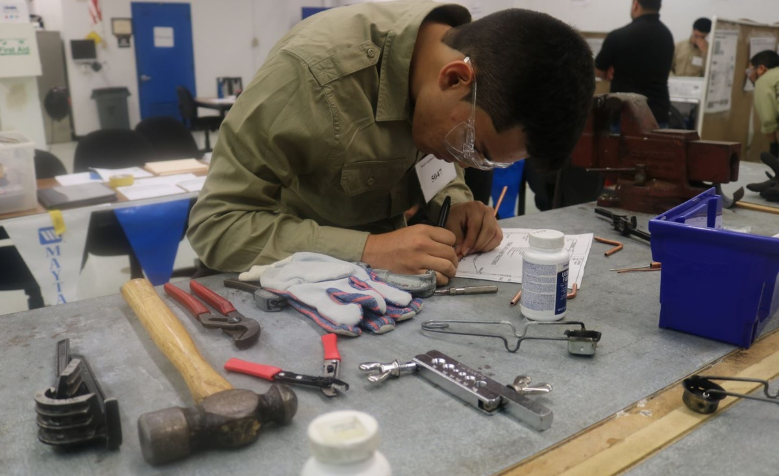Why Refrigerator repair experts Dependable Refrigeration & Appliance Repair Say Energy Spikes Could Mean a Failing Fridge
Important Tips for Effective Ref Fixing to Expand Home Appliance Life-span
When it comes to your fridge, appropriate repair and maintenance are vital for long life. Understanding typical troubles and knowing when to act can make all the distinction.
Comprehending Usual Refrigerator Issues
Fridges are necessary in maintaining your food fresh, however they can experience a variety of common troubles that interrupt their efficiency. If you see food ruining quicker than usual, inspect the thermostat setups or take into consideration if the door seals are harmed. Recognizing these issues early can save you time and cash in repairs, guaranteeing your refrigerator runs smoothly and effectively.
Regular Maintenance Practices
To keep your devices running efficiently, you require to remain on top of normal upkeep methods. Tidy the condenser coils, check the door seals, and keep an eye on the temperature level setups to assure peak performance. These basic jobs can save you time and cash on repair services down the line.
Clean Condenser Coils Regularly
Cleaning your condenser coils consistently can significantly improve your appliance's performance. Dust and dust accumulate on these coils gradually, causing your device to function more challenging and eat more energy. To maintain them clean, disconnect your home appliance and carefully eliminate any kind of protective covers. Make use of a vacuum cleaner with a brush accessory or a soft brush to delicately eliminate debris. If required, a mix of warm water and light detergent can aid eliminate persistent grime. See to it to allow every little thing dry completely prior to rebuilding and plugging the device back in. Goal to clean your coils at the very least twice a year, or more frequently if you have family pets or live in a messy setting. This easy job can prolong the life-span of your home appliance substantially.
Inspect Door Seals
Three easy steps can aid you assure your appliance's door seals are in good condition. 2nd, clean the seals using warm, soapy water to eliminate any type of particles or gunk. By complying with these steps, you'll keep your device's performance and durability, saving you money on energy bills and fixings in the long run.
Screen Temperature Settings
Consistently checking your appliance's temperature settings is essential for best performance and efficiency. Whether you're taking care of a refrigerator, fridge freezer, or stove, maintaining an eye on these settings can stop lots of problems. For fridges, go for temperature levels in between 35 ° F and 38 ° F; for freezers, linger 0 ° F. If the temperature levels are expensive or low, your home appliance might function harder, squandering energy and shortening its life-span. Utilize a thermostat to check these settings routinely, particularly after significant adjustments, like moving your appliance or adjusting the thermostat. If you observe fluctuations, change the setups appropriately and speak with the user handbook for assistance. By staying aggressive regarding temperature surveillance, you'll guarantee your home appliances run efficiently and last much longer.
Fixing Air Conditioning Concerns
When your refrigerator isn't cooling down properly, it can bring about ruined food and wasted money, so addressing the problem promptly is important. Begin by checking the temperature level settings to confirm they go to the recommended degrees, normally around 37 ° F for the fridge and 0 ° F for the freezer. If the settings are proper, examine the door seals for any type of voids or damage; a malfunctioning seal can allow cozy air to get in.
Check the condenser coils, usually situated at the back or base of the system. Clean them with a vacuum or brush to optimize efficiency. If issues persist, it could be time to call a professional.
Fixing Water Leak and Ice Accumulation
If you're handling water leakage or ice build-up in your appliance, it's necessary to determine the resource of the issue. By identifying where the water is originating from, you can avoid additional issues and prevent costly repairs. Allow's check out some effective techniques to take on these typical problems.
Determine Leakage Resources
How can you efficiently recognize the sources of water leak and ice build-up in your appliances? Beginning by examining the seals and gaskets on your fridge and freezer doors. A used or broken seal can enable warm air to get in, causing condensation and ice. Next off, check the drain frying pan and water drainage system for blockages or blockages; a backed-up drain can cause water merging. Search for any kind of loose links in the supply of water line, which can produce leaks. Check out the defrost drain for ice accumulation, which can disrupt appropriate drainage. By methodically checking these areas, you'll identify the resource of the trouble, permitting you to take the required steps to repair it and prolong your appliance's life expectancy.
Prevent Ice Formation
To avoid ice development in your devices, begin by verifying the temperature settings are appropriate. If your fridge or fridge freezer is also chilly, it can lead to excessive ice build-up. Examine the door seals consistently; damaged seals can let cozy air in, creating condensation and ice development.
Maintain the device well-ventilated and avoid overcrowding, as this can block air movement - Refrigerator repair experts Dependable Refrigeration & Appliance Repair. Additionally, consistently thaw your freezer if it does not washing machine belt replacement have an automatic defrost feature.
If you notice water leak, determine and fix any blocked drain holes, as they can add to ice accumulation. Finally, tidy the coils and validate they're functioning correctly to keep peak performance. Taking these steps will assist extend your device's life expectancy and efficiency.
Attending To Noisy Refrigerator Sounds
While it may seem disconcerting, a noisy fridge usually indicates small issues as opposed to significant breakdowns. Initially, determine the resource of the sound. Common wrongdoers include the compressor, fans, and water lines. If you hear a humming audio, it could be the compressor striving; this can just be a regular operation sound.
Following, examine for loose items inside. Often, containers or racks can rattle, developing undesirable noise. Tighten or rearrange them to get rid of the audios.
If you notice a clicking noise, it may be the defrost timer. This is commonly safe but might suggest it requires assessment.
Ultimately, validate your fridge is level. An unbalanced appliance can produce vibrations and noise. Use a degree to inspect, and readjust the feet if required. Dealing with these issues without delay can assist maintain your fridge's efficiency and lengthen its life-span.
When to Change Parts vs. Complete Replacement

However, if your device is older and experiencing multiple problems, a full substitute could be much more cost-effective. Think about the cost of repair work versus the home appliance's value. If fixings surpass 50% of a new unit's price, it's usually wiser to buy a replacement. In addition, if you notice continuous troubles that keep persisting, it's an indicator that your appliance has gotten to the end of its life. Evaluate these aspects carefully to make the finest decision for your needs and budget plan.
Understanding When to Call an Expert
Exactly how can you tell when it's time to call a professional for appliance repair? If you see uncommon sounds, smells, or leaks, it's a clear signal that something's wrong. Don't disregard these indicators; they usually indicate much deeper concerns. If your home appliance stops working completely or regularly journeys moved here circuit breakers, it's another warning.
You must additionally consider your own convenience degree with repair work. If you're uncertain about detecting the issue or lack the right devices, it's best to get to out for assistance. Keep in mind, trying complex repair work can bring about even more damages and even safety threats.

Frequently Asked Questions
How Usually Should I Clean the Refrigerator Coils?
You should clean your fridge coils every six months. This aids maintain effectiveness and stops getting page too hot. If you discover excessive dust or pet dog hair, clean them a lot more often to ensure your fridge runs smoothly.

Can I Use Vinegar for Cleaning My Refrigerator?
Yes, you can utilize vinegar to clean your fridge! It's an outstanding natural cleaner that eliminates smells and spots. Dependable Refrigeration & Appliance Repair Service LG Appliance Repair. Simply blend it with water, use it to surfaces, and clean down for a fresh, clean fridge
What Temperature Should My Refrigerator Be Ready To?
You ought to establish your refrigerator to 37 ° F(3 ° C) for ideal food preservation. This temperature level keeps your food fresh while stopping perishing, guaranteeing your groceries last longer and reducing waste. It's a very easy change you can make!
Does a Fridge Required to Be Leveled?
Yes, your fridge requires to be leveled. If it's irregular, it can influence cooling efficiency and cause excess sound. Check the progressing legs and adjust them to assure proper balance for suitable performance.
Exactly How Can I Lower Refrigerator Power Usage?
To lower your fridge's energy consumption, maintain it tidy and well-ventilated, inspect door seals for leaks, established the temperature in between 35-38 ° F, and avoid straining it. These actions can significantly reduce your energy bills.